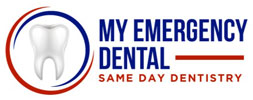What is a dental emergency?
A Knocked-Out Tooth
It is crucial to know what to do in the event of a dental emergency, as they can occur suddenly and without warning. Toothaches are one of the most common dental emergencies, which can be caused by tooth decay, a fractured tooth, or periodontal disease. If you have a toothache, rinse your mouth with tepid water and floss your teeth to remove any food particles that could be causing the discomfort. Toothaches can be alleviated with over-the-counter painkillers, but it’s crucial to see a dentist as soon as possible to determine the underlying cause.
A fractured or knocked-out tooth is another typical dental emergency. Rinse your mouth with tepid water and apply a cold compress to reduce swelling if you broke a tooth. When a tooth is pushed out, it is essential to retrieve it and keep it moist. This can be accomplished by immersing the substance in a container of milk or saliva. To increase the odds of saving a tooth, it is crucial to visit a dentist within 30 minutes.
To avoid dental emergencies, it is essential to practice good oral hygiene by cleansing your teeth twice a day, flossing once a day, and visiting the dentist regularly for checkups and cleanings. Avoid biting ice or popcorn kernels, and don a mouthguard if you participate in contact sports. Avoid using your teeth as instruments, such as to open packages or bottles.
In conclusion, dental emergencies can be sudden and unexpected, but you can take measures to prevent them. Maintain excellent oral hygiene, avoid chewing on hard objects or using your teeth as tools, and wear a mouthguard. Seek immediate dental care in the event of a dental emergency to increase the possibilities of saving the affected tooth or teeth.
Sports-Related Injuries
When faced with a dental emergency, it’s important to know what to do. The first step is to remain calm and assess the situation. If you’re experiencing severe pain, take over-the-counter pain medication to help ease the discomfort. If a tooth has been knocked out, try to find it and keep it moist until you can see a dentist. If a tooth is broken or chipped, save any pieces that you can and see a dentist as soon as possible.
It’s also important to know how to avert dental issues by taking preventative measures. One of the most common causes of dental emergencies is poor oral hygiene. Brushing twice a day, flossing regularly, and visiting your dentist for regular checkups can help prevent tooth decay and other dental issues that may lead to emergencies.
Another common cause of dental emergencies is sports-related injuries. If you play contact sports, it’s important to wear a mouthguard to protect your teeth and gums from impact. A custom-fitted mouthguard is the most effective option for protection.
Avoid Hard Foods
Any condition involving your teeth that needs prompt attention from a dentist is considered a dental emergency. Common dental emergencies include the following:
● Toothache: A toothache is a sharp, throbbing pain in your tooth that can be caused by a variety of factors, including tooth decay or an abscess.
● Broken or chipped teeth: If your tooth has been chipped or broken, it’s important to see a dentist as soon as possible to prevent further damage.
● Knocked-out teeth: If your tooth has been knocked out, it’s important to see a dentist immediately. In some cases, the tooth may be able to be saved if treatment is received quickly enough.
● Lost fillings or crowns: If you’ve lost a filling or crown, it’s important to see a dentist as soon as possible to prevent further damage to your tooth.
Here are some tips to help you keep your teeth healthy and prevent dental emergencies:
1. Avoid hard foods: Chewing on hard candies or ice can cause your teeth to chip or break.
2. Schedule regular dental check-ups: Regular dental check-ups can help catch problems before they become emergencies.
3. Be cautious with your teeth: Avoid using your teeth to open packages or bottles, and don’t chew on pens or pencils.
Regularly Visit the Dentist
Dental emergencies directly correspond to the pain level you are experiencing. So if you are experiencing a toothache of any kind, call your dentist so they can help you determine the best time to come in for an exam. Different dental emergencies will be caused by different things and are sometimes avoidable. An emergency root canal, for example, may come about when a patient leaves a more minor condition, such as a cavity, untreated for too long. These can often be prevented by a good at-home oral health routine and regular visits to the dentist.
Other severe dental emergencies, such as blunt force trauma to the teeth, are sometimes unavoidable. However, whenever you chip or lose a tooth, always try to recover the piece, as your dentist can often use it in the repair.
Often, we will see trauma dental emergencies such as broken teeth from sports accidents. In these cases, the best preventative measure you can take is to get fitted for a mouthguard with your dentist before you play. These are especially important for any competitive sports where collisions are almost unavoidable.
This is a crowdsourced article. Contributors' statements do not necessarily reflect the opinion of this website, other people, businesses, or other contributors.




